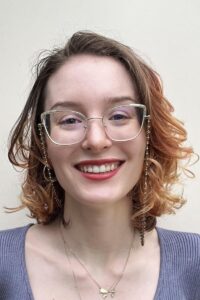Celebrating Our Recent PILS Summer Fellows—and Looking Forward to 2025
Marquette University Law School and its surrounding communities are fortunate to have students dedicated to making a positive impact, as well as the strong support of those who help them in their efforts. As we look forward to a new group of Public Interest Law Society (PILS) fellows for this summer, we are sharing this week a series of reflections by Marquette law students on their experiences as Public Interest Law Society fellows during the past summer.
These reflections offer insight into how hands-on advocacy not only affects the communities served but also shapes the professional identities of future attorneys.
Public interest legal work requires working with people through challenging times. Our PILS fellows provide critical services to underserved populations and confront the challenge of justice—or injustice—in people’s lives.
This series of stories provides an opportunity to reflect on the formative power of this work.
We begin with Andrea Bishop (2L), who worked with Legal Action of Wisconsin’s Eviction Defense Project, providing legal representation to tenants facing housing instability. Her story reveals how critical access to representation is in addressing inequities in housing and creating stability for vulnerable individuals and communities.
By Andrea Bishop, 2L
 At least twice a week this past summer, I worked with a tenant who, like dozens of others present in the Milwaukee County Courthouse, was moments away from losing their home—until we stepped in. This is the difference that adequate counsel can play in a person’s life.
At least twice a week this past summer, I worked with a tenant who, like dozens of others present in the Milwaukee County Courthouse, was moments away from losing their home—until we stepped in. This is the difference that adequate counsel can play in a person’s life.
I worked for and have continued to volunteer with Legal Action of Wisconsin’s Eviction Defense Project. Focusing on providing same-day limited scope legal representation to tenants facing eviction court, the Eviction Defense Project has been instrumental in changing the lives of hundreds of individuals.
Because civil defendants do not have a constitutional right to counsel, most Milwaukee tenants go unrepresented in eviction proceedings. The National Coalition for a Civil Right to Counsel reported that only 2% of Milwaukee tenants receive legal representation. But 76% of those represented successfully prevent eviction, according to the Stout report on Eviction Free MKE. Representation matters.
When tenants have access to counsel, they are given support that can make the difference in the ability to maintain jobs, schooling, and even health. In Milwaukee County, eviction court cases and judgments disproportionally affect individuals of color, exacerbating the already pressing issues of poverty and housing instability. Most Milwaukee landlords will outright deny rental applications from individuals with eviction cases on their records, even if the judgment has been paid in full or the case dismissed. Those that accept them tend to charge double or triple the security deposit to provide collateral to mitigate the risk of renting to tenants with prior evictions. These increased costs result in limited housing options for individuals suffering from financial difficulties, who are often left living in housing with severe conditions issues.
Many tenants at risk of eviction do not report unsafe conditions to Milwaukee’s Department of Neighborhood Services (DNS) for fear their housing will be deemed uninhabitable. This would force them to lose their housing, often without warning or preparation. Even when tenants do request inspections, DNS can refuse them and regularly does so when eviction proceedings are in motion.
Tenants who have had an eviction granted against them may lose housing benefits that are a critical component of their ability to maintain safe and secure housing. While tenants can reapply for benefits through the Housing Authority of the City of Milwaukee (HACM), it is a process which involves multiple forms and a lottery system. There is not enough availability of these sought after housing vouchers—HACM closed its Section 8 Housing Choice Voucher and Public Housing waiting lists on August 1, 2024—and individuals who qualify have now missed their chance at affordable housing.
Milwaukee’s housing instability crisis requires all of us—lawmakers, landlords, and community members—to work together toward systemic change. The work of the Eviction Defense Project is just the beginning, and there is more to be done to ensure everyone has a safe and secure home. I am glad for the opportunity to contribute to this work.

 Last year, I watched as a law student was introduced to a lawyer volunteering at the legal clinic. The lawyer was a white man in his 60s. The student was a woman of color in her 20s, and she was wearing hijab. I happen to know that both people have hearts of gold and come to the legal clinic with a desire to help and to give their time and talents selflessly.
Last year, I watched as a law student was introduced to a lawyer volunteering at the legal clinic. The lawyer was a white man in his 60s. The student was a woman of color in her 20s, and she was wearing hijab. I happen to know that both people have hearts of gold and come to the legal clinic with a desire to help and to give their time and talents selflessly.